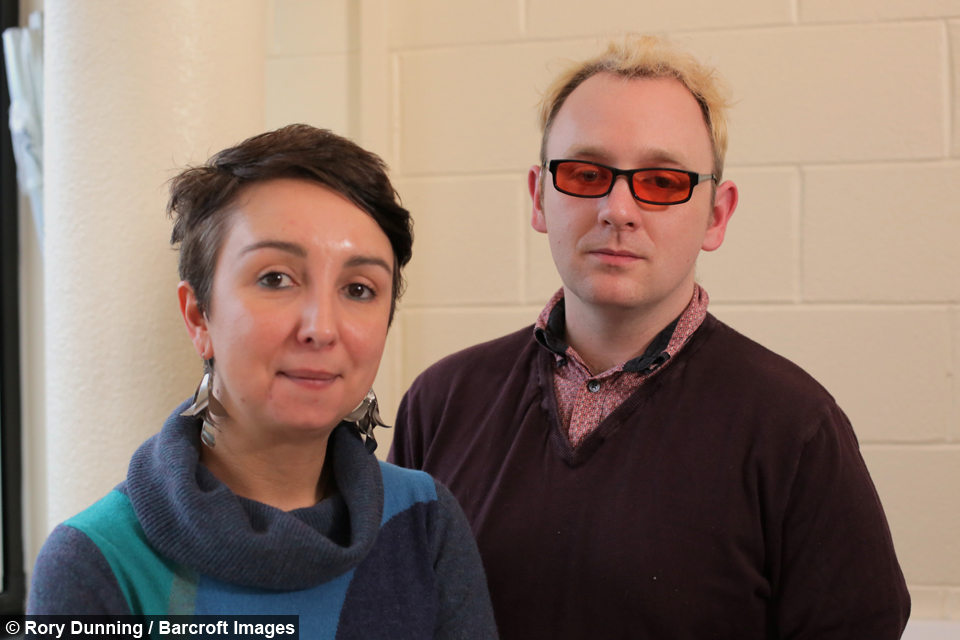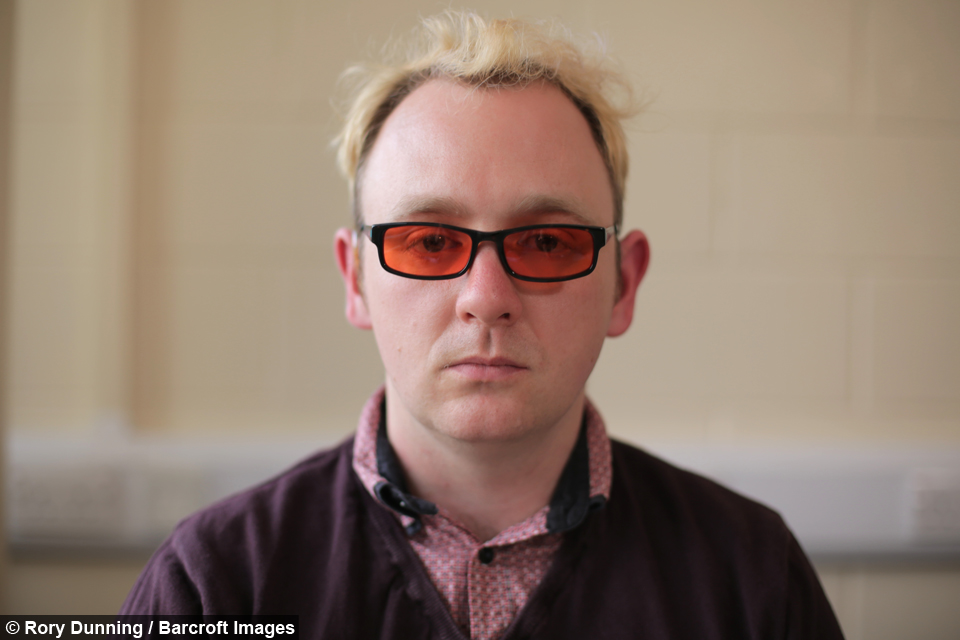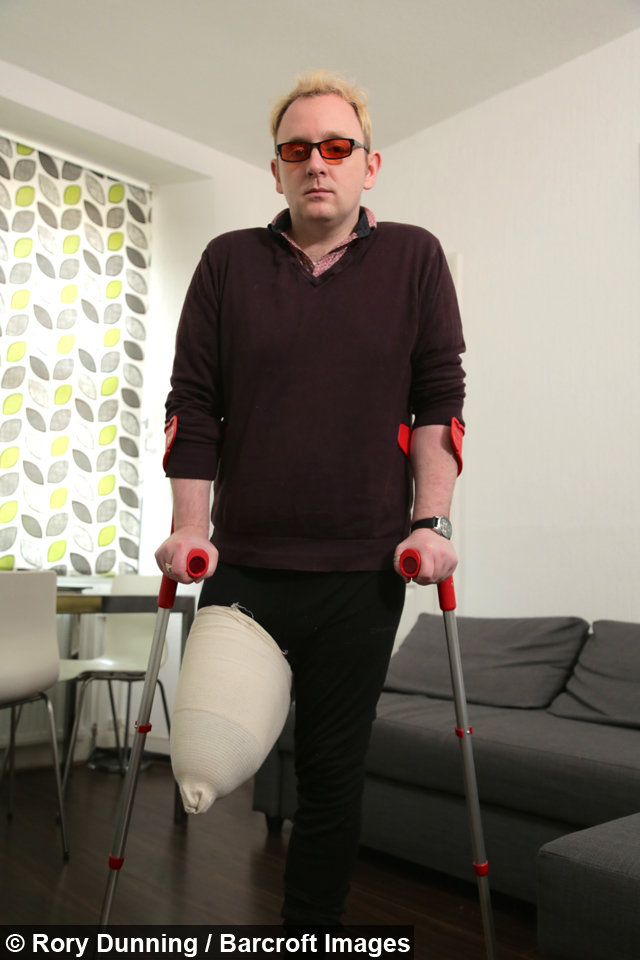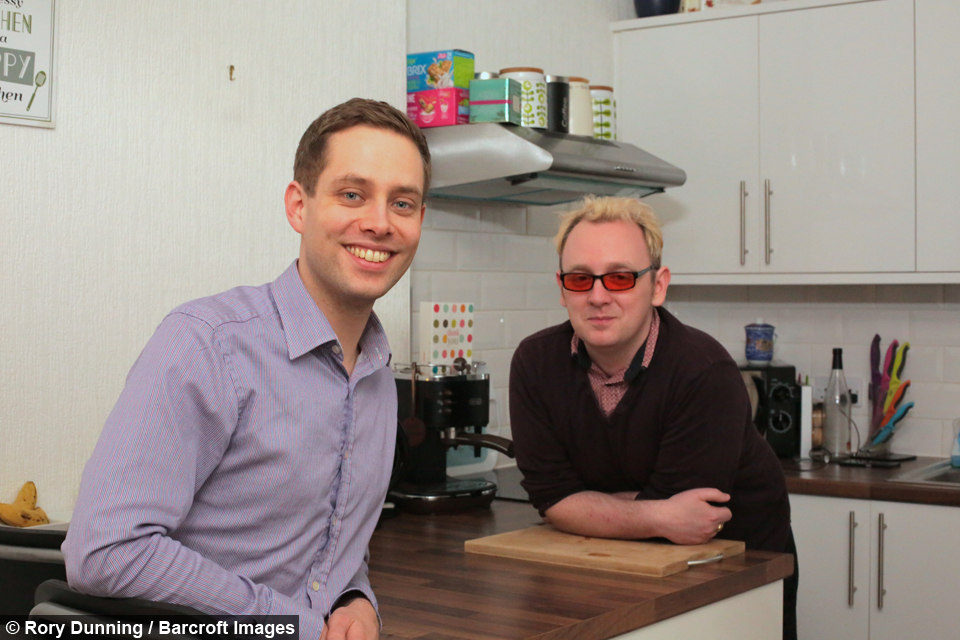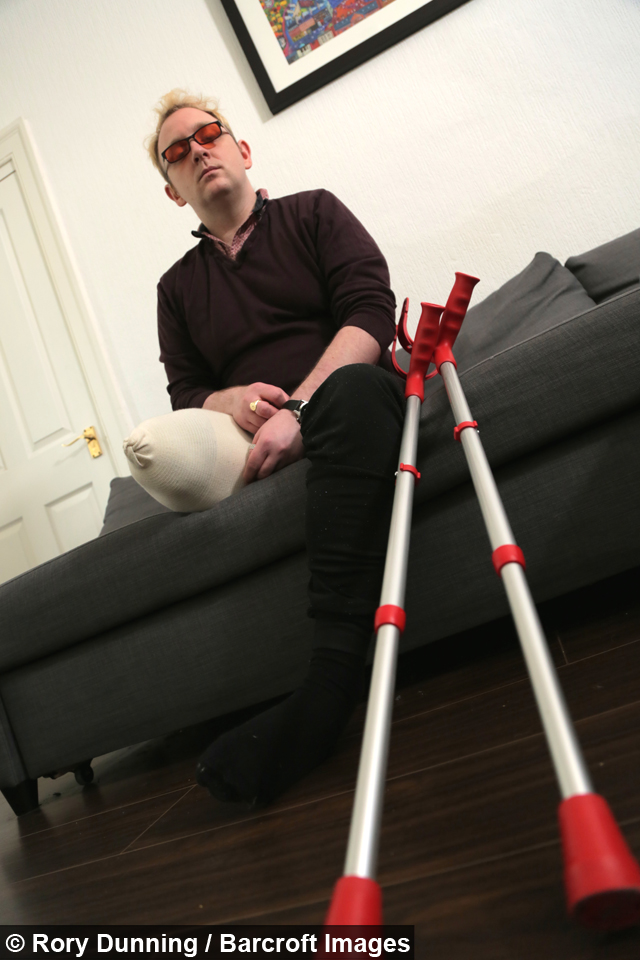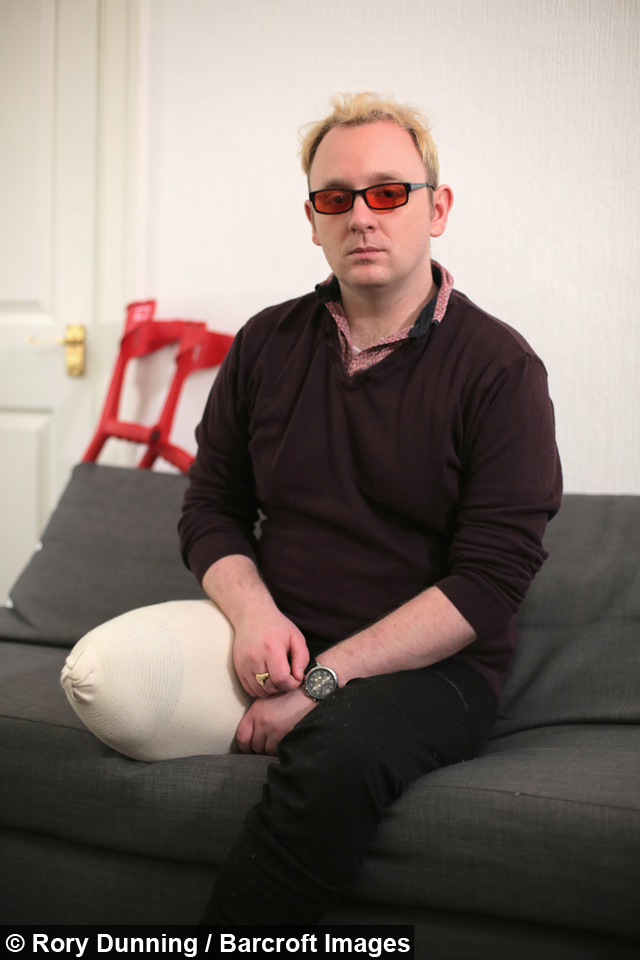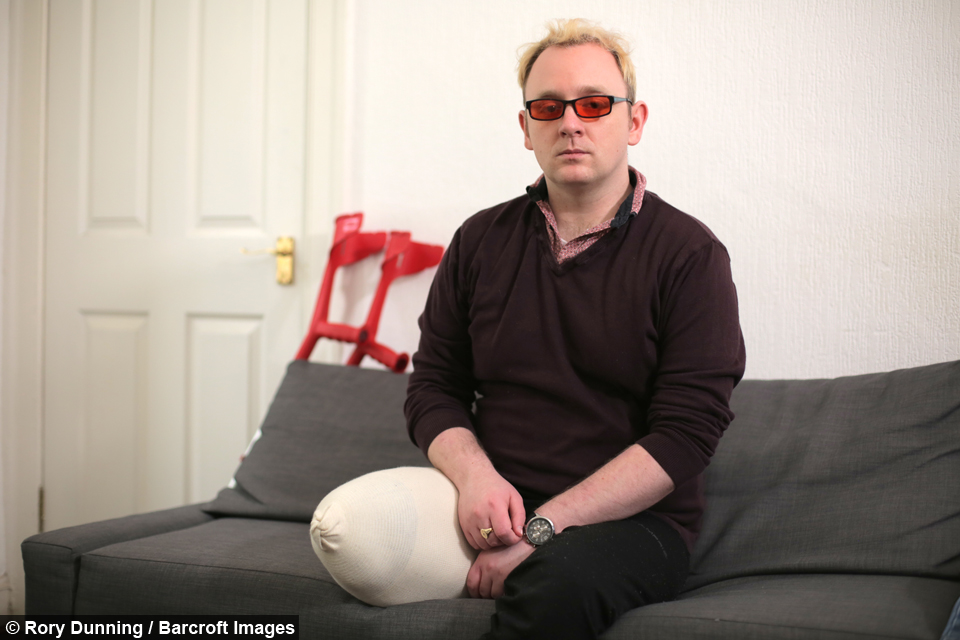Living With BIID: "I Tried To Cut Off My Leg"
By Katie Mercer @katiemercer_BM
Scroll down for the full story
Videographer / Director: Rory Dunning
Producer: Katie Mercer, Ruby Coote
Editor: Marcus Cooper
But the truth is, this scenario is just wishful thinking for the 29-year-old from Edinburgh. He is actually a fully able-bodied man who longs to be an amputee.
“I want it to be amputated” he says, with a hint of regret. “I perceive that to be my end goal.
“It is really the only way that I can see a future where I am happy and comfortable with myself. I do know that that is a bizarre thing to say but it's how I feel.”
And he’s not alone. Nick, is one of the very few people in the UK known to be suffering from BIID - Body Integrity Identity Disorder - a rare neurological condition that makes people unable to recognise certain body parts as their own.
Research on the condition is scarce – primarily because of a reluctance of sufferers to speak out – but even the most brief of online searches shows that there are hundreds, maybe thousands, of people claiming to have BIID.
Some sufferers want to become paraplegic, some blind, but for Nick it is his right leg that is affected.
He said: “I can tell you exactly where it stops being ‘my body.' Three inches below my right hip. After that, it’s just not me.
“I think I’ve always felt this way, but I think when I was younger I just couldn’t put it into words.
"I remember vividly around the age of 10 feeling like something wasn’t right with my body and I just had this disgust toward my right leg.
“It was only when I was older and began studying psychology at university that I realised it had a name.”
Nick, a former special needs teacher, describes feeling a ‘constant itch’ in his right leg which can, on bad days, take him hours to appease. Sometimes the compulsion to scratch is so great he breaks the skin and draws blood.
To help lessen the distress his perfectly healthy right leg causes him, Nick likes to ‘pretend.’
He bends the leg and sheaths it in a tube bandage before strapping it up and putting into the leg of his jeans, giving the appearance of a stump.
He then moves around on crutches like an amputee.
Only manageable for a few hours at a time, Nick says that binding his leg is the closest he ever feels to his ‘true self’.
“I have no association with my right leg,” Nick explains.
“It just feels like it shouldn’t be there. I’d say it’s similar to if you had a weird growth on your arm - it would revolt you and disgust you and you’d want to get it taken off as quickly as possible. That is how I feel about my leg but obviously, I can’t get it removed.”
That’s not to say Nick hasn’t tried. Three years ago he paid a ‘gatekeeper’ - a person who posts in BIID forums - boasting about contacts they have in the surgical field who are willing to amputate limbs for a fee.
Nick paid the gatekeeper £20,000 to be put in touch with the surgeon and finally get his leg amputated.
But before any operation was scheduled, the gatekeeper disappeared, taking Nick’s money with him. He was never traced.
“I couldn’t report it to the police,” Nick says. “How do you explain it? I hadn’t told anyone about what I was going through at that point for fear of being branded a freak or a weirdo.”
Feeling trapped and becoming increasingly isolated, Nick felt forced into taking matters into his own hands.
On three separate occasions, he injected his left leg with medical strength alcohol, hoping to cause so much damage that doctors would have no other choice but to amputate.
“The day I did it for the first time, the itch was intense. It was quite severe. I needed to do something and I thought, either this will work or I will try something more drastic – I thought about perhaps putting the leg on a train track or something like that. The desperation to be rid of it is that extreme.
“I really didn’t need to drum up any courage before injecting the leg because I don’t feel like it is really attached to me so in damaging the leg, I’m not breaking anything that I identify as mine. I just don’t care at all what happens to it.
“Of course, everything else I care deeply about and so I had to measure the alcohol out carefully because I didn’t want to do any damage to any other part of my body.”
Nick made arrangements for a taxi to take him to the hospital – figuring that because he’d done the damage to himself, he couldn’t justify an ambulance. But before he had time to take himself to the emergency room, the feeling had returned to his leg.
“Each time I have tried this, it’s been incredibly painful. A very intense pain – you feel the alcohol drying up in your muscles - but after the pain there’s a feeling of success, because the limb goes numb.
“Eventually though, the feeling comes back and the leg just goes back to normal.”
The itch in Nick’s leg became so preoccupying last year that he had to eventually quit his job. He confided in a GP, hoping for help, but instead was put on medication for obsessive compulsive disorder and depression.
But it hasn’t changed how he feels about his body.
And in May 2016, Nick walked to Haymarket station, intending to throw himself under a train.
“There’s a lot of guilt and shame associated with the way I feel. I fully understand that there are people born without limbs who would love a fully able body. It’s a very complicated and difficult disorder to deal
with. Especially without support.”
Fortunately, staff at the station noticed Nick on the platform and rushed to remove him. He decided then and there that it was time to speak out about his condition.
He confided in his best friend, Daniel after a night out and although completely shocked Daniel offered nothing but support.
Daniel said: “I’d never heard of BIID before.
“I was very worried for Nick and I still do worry. When he told me, I could see how ashamed he felt and how it was really disturbing him.
“I researched it myself and I saw a lot of negative comments from people online. People were saying that those with BIID are taking their bodies for granted and should be grateful for what they have.
“I found it frustrating because Nick is my friend and I know, now, what he is living with and it needs to be understood.
“As humans, we aren’t just black and white – we’re all colourful and different and this is just another thing that’s out there.
“I’ve seen him using his crutches and it is strange but you know what, it’s nice to see him happy and like he can be himself.
“I would 110 per cent support Nick in getting an amputation as long as it was safe. I’d much rather that than him try to harm himself.”
Encouraged, Nick travelled to Heriot Watt University last month (February 2017) to meet Assistant Professor in Psychology, Dr Anna Sedda.
Dr Sedda is one of only a handful of psychologists actively researching BIID – and, fortuitously, is conducting her research from the Edinburgh campus.
She tested Nick in the same way she had other people in her research and found his results to correspond with her previous BIID case studies.
She said: “I run tests on emotional processing, specifically disgust processing.
“We all need to feel disgust because it warns us against contamination and dangerous situations. What we find in Nick’s results, as with other people with BIID, is that he has a perfectly normal response to disgust – the same as anyone you would meet in the street, but there is a specific difference when it comes to the amputation of body parts.
"It shows that there is a different emotional processing in relation to the representation of the body in people with BIID.”
Dr Sedda’s research shows a clear pattern in BIID case studies and suggests that the disorder is due to a misfire in the brain’s neurons, rather than a mental health problem.
“We represent our body with one head, two arms, two legs and that internal map is located in the corical areas of the brain. In BIID, there is a dysfunction here so it may be that it is a condition that is present since birth.”
Dr Sedda believes that with brain simulation techniques, the urges to amputate the leg could be lowered. She offers to try this on Nick and he readily accepts.
Nick said: “It was great to meet Anna and just confirm that what I feel is real and that I am not alone. I feel much more positive now and I am interested to work with her. Any help and any awareness I can raise would be brilliant.”
Dr Sedda says “The life risk associated with BIID is really extreme. In my research I have come across people who have gone to extreme lengths to remove their limbs and people who have killed themselves because they cannot deal with their feelings.
“By speaking out, Nick is helping not only other people with the condition but the scientific community. The more we know about BIID, the more we can offer support and ensure the safety of people like Nick."
